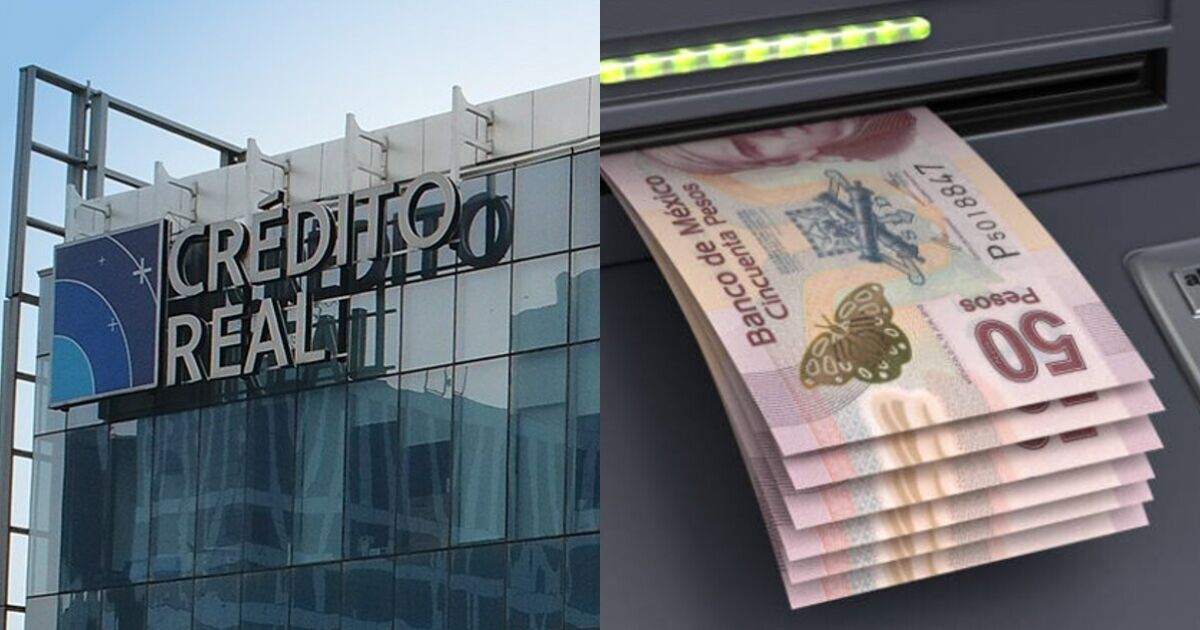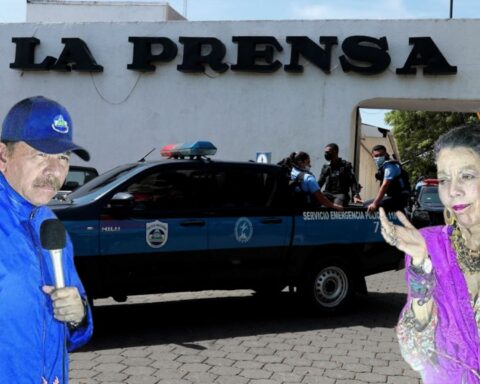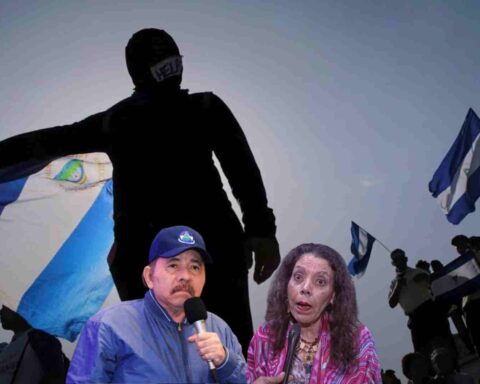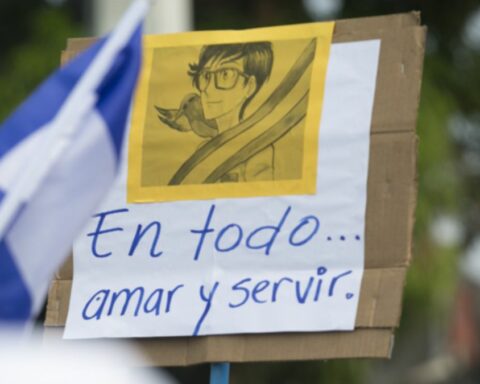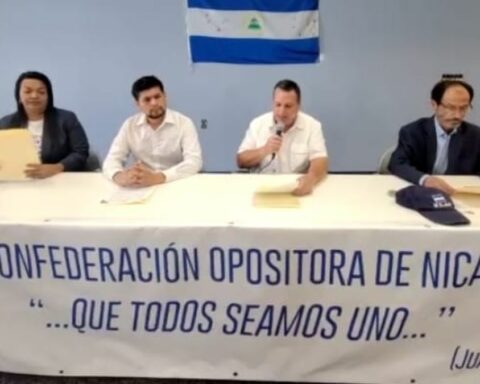The European Parliament will vote this Thursday, June 9, on a draft resolution, in which it is demanded that the European Union sanction fourteen judges and three magistrates of the Court of Appeals of Managua. The existence of this list became known in a letter that, last May, the MEP Javier Nart —and two other members of the Renew Europe group— sent to the EU High Representative for Foreign Affairs and Security Policy, Josep Borrell.
In the letter, the MEPs — Javier Nart, Soraya Rodríguez and Jordi Cañas — warn that “impunity is increasing in Nicaragua” and that judges must be held directly responsible for the repression in the country”.
In an interview with Carlos Fernando Chamorro on the program Tonight, which is broadcast this Wednesday, June 8, MEP Nart commented that “some judges who do not know about torture, who do not enter into anything and who are loyal to the dictator Daniel Ortega, are part of the repression. These gentlemen are obscene repressors and, therefore, as guilty as the one who tortures, or as Daniel Ortega, who is the one who orders them, they obey”.
This is the first time that a resolution of the European Parliament requires the imposition of sanctions against judges and magistrates. Since 2018, MEPs have approved six resolutions on the Nicaraguan situation.
You are one of the promoters of an initiative in the European Parliament to demand political sanctions against 14 judges who have sentenced political prisoners in Nicaragua in sham trials, and who act as instruments of repression. What echo has this proposal had in the European Parliament?
The support has been massive, almost unanimous, with the exception of what I call the tambourine leftists. Except for these, who logically always have an external reference that overcomes their internal Freudian-pathological frustrations, all the deputies of Parliament have supported a resolution that calls for something subversive in Nicaragua, which is human rights, freedoms and, simply, democracy.
This draft resolution focuses on the judges who have sentenced political prisoners. What is the scope of the resolution?
They are personal and economic sanctions. They become international outcasts in the context of the European Union. I am 75 years old and as a lawyer I practiced, if you can say practiced, before the Francoist Public Order Court, which was the one that sent the democrats to jail; I was very clear, from the first moment, that repression is a system, and the system is not the dictatorial autocrat Daniel Ortega and his holy lady, but rather it is a system that begins with the president, who gives orders to the Ministry of the Interior for the Police to act; the Police is the one who detains and tortures, and then passes it on to the judges, who are the ones who condemn.
This is what the Franco regime did, and so did Stalin, although in some cases he sent them to death without going through the so-called justice.
It is evident that it is not possible to send to jail in the pantomime of a regime with its own institutions: executive, legislative and judicial in Nicaragua, without the judges intervening. The judges clearly are guilty; They are not some exquisite gentlemen who apply the code in a neutral way, they apply it in an interested way as the courts of the Franco dictatorship applied it. Some judges who do not know about torture, who do not enter into anything and who are faithfully genuflected before the dictator Daniel Ortega, are part of the repression. These gentlemen are obscene repressors and, therefore, as guilty as the one who tortures, or as Daniel Ortega, who is the one who orders them, they obey.
Does it focus on 14 judges or on other officials also from the judicial sector?
These magnificent gentlemen, who sit in the armchairs of the audience and who spit on justice, saying that they are justice, are also included in the list, the most distinguished courts of appeal, which recognize neither torture nor obscene sentences, but that justify and ratify them. These gentlemen are also outcasts in the eyes of the European Union community.
You spoke of some sectors that support Ortega, who are those sectors?
What I call paleocommunism and tambourine leftists. There is nothing more useful than waging war against Yankee imperialism, down to the last Vietnamese; yes, you are perfectly fine in your house with air conditioning and living superbly, but in solidarity with the revolution. In the case of Nicaragua, there is no revolution, here there is a corrupt dictatorship, which only has leftist clothing, but behind that clothing, what it hides is simply pure repressive shit. In other words, we are talking about the most reactionary and liberticidal regimes that exist. Anyway, there are always useful idiots.
Investigation in International Court
Taking into account that it is highly probable that this resolution will be approved in the European Parliament with a majority vote, what do you expect from the European Commission?
The sanctions are not imposed by Parliament, they are proposed; and the Commission then has to implement them. We are talking about a Commission where there are people, such as Vice President Josep Borrell, a Spaniard who knew directly what repression was, what a dictatorship was, and what those courts of shame were, that spit on justice from their fat tinsel in black robes and togas.
There are two more elements: an element where the International Criminal Court is requested to act against the barbaric regime of Daniel Ortega; and a last one, where the Member States are also asked to pay special attention to the granting of visas, collection and protection in our territory and in Europe, of those people who are subject to repression by the dictatorial regime.
In other words, it is not a pure political-philosophical statement, but it has very clear and very direct elements that are going to affect the Nicaraguan regime. And the last question that is not minor: it is requested that in light of the current circumstances the democratic clause of the Agreement that exists with Nicaragua be put into operation. This is calling direct attention to the dictatorial regime in Nicaragua, to tell it that the advantages that exist for economic relations are going to be directly affected, because the Government of Europe, the Commission, is being asked to apply the democratic clause and, therefore, they are asked for direct responsibilities, which are our economic relations with this Government, if they maintain this situation as they are doing.
Is there attention in the European Commission to the crisis in Nicaragua in the midst of Russia’s invasion of Ukraine, this crisis that has had such an impact on Europe?
Point 16 (of the resolution) draws attention to Nicaragua’s position regarding the atrocities carried out by Russia in the invasion of Ukraine. The position of the Managua regime that has simply looked the other way. There is a saying that says: “God raises them, and they come together”. Who do they hang out with? With the Cubans, the Venezuelans, the Russians, the Belarusians, and with North Korea.
How can international pressure impact the restitution of democratic freedoms in Nicaragua, which in the end is the key to solving this political crisis in the country?
There is a decisive problem in the Nicaraguan case, as there is also in the Cuban and Venezuelan case. The direct crimes, I am not saying political repression, that the rulers of these countries have committed, give them a very complicated alternative: to go to North Korea, which frankly is not a very pleasant place; or end up in jail giving account of his direct responsibilities in torture, in death, in corruption. The regime is going to cling to power because it has no way out. The way out is Pyongyang or jail.
These gentlemen have no alternative, neither their relatives, nor those involved in corruption, because these are direct crimes. Given the repression to which the Nicaraguan people are subjected, this will end in an internal explosion, in an implosion, and it will be unfortunate because it will mean suffering for a certain time.
From Europe we cannot change the situation, but we can, from the outset, send a very clear signal with resolutions that directly affect economic sectors of the regime, people of the regime; and above all, a message to other governments, in this case Central American and American as a whole, that there is a position from the European Union, which is a very important international actor, of what our position is and, therefore, that we are in line with what democracy is in America.
Political prisoners
Today the presidential candidates Juan Sebastián Chamorro and Félix Maradiaga, as well as Violeta Granera and José Adán Aguerri, are serving a year in prison in Chipote; and next Sunday and Monday, the four leaders of Unamos will celebrate one year in solitary confinement cells: Dora María Téllez, Suyen Barahona, Ana Margarita Vijil and Tamara Dávila. Does this resolution have any proposals on the release of political prisoners?
In points one, two, three and four, precisely, we talked about that; We also talked about the death of Hugo Torres. To think that Dora María Téllez was going to end up imprisoned by Daniel Ortega, one would have thought that the appropriate thing, within that barbarism, is that it would have been by Anastasio Somoza. What happens is that Anastasio Somoza has been resurrected in the obscene skin of Mr. Daniel Ortega.
Does the European Union, the Parliament, have a medium-term vision on this crisis in Nicaragua?
Vice President Josep Borrell has clearly stated the position of the European Union regarding Daniel Ortega’s liberticidal regime: we have not recognized the fraudulent elections, our position does not change, it is the same; What happens is that we are increasing the level of response. Now the policemen, the members of the government and the holy presidential couple are no longer there, we are already talking about the judges, we are covering the spectrum.
I have been a lawyer for 50 years and I began to practice under Franco’s mandate, and that kind of difference between the policeman who tortured and the judge who sentenced, I never established. For me, the judge who condemned was the continuation of the policeman who tortured, and who was the last link in Franco’s power. Daniel Ortega, who ordered the repression, is ultimately an equilateral triangle, everyone is responsible in equal intensity.



